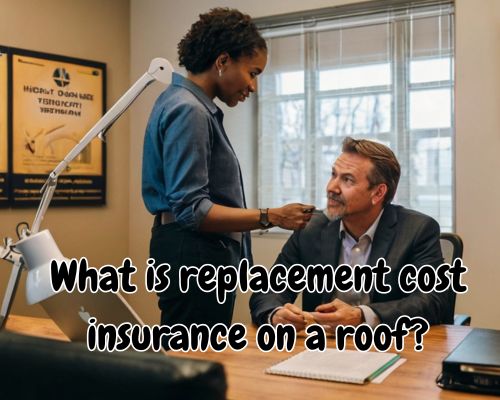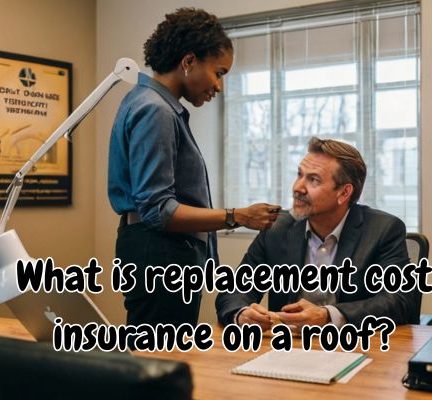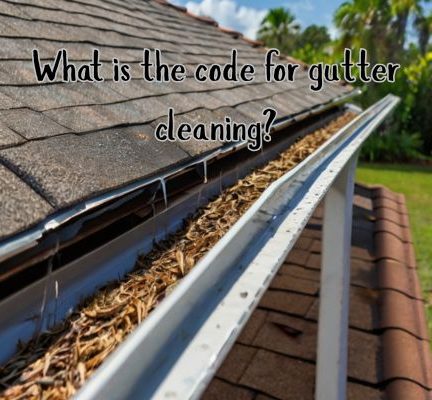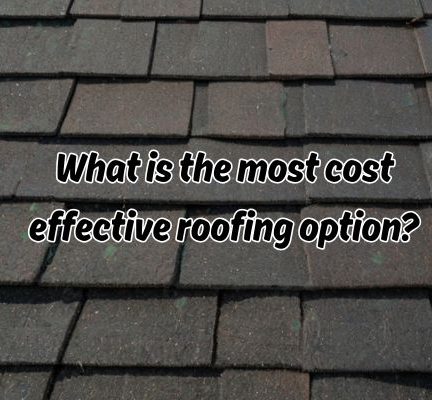When a storm sweeps across the Jersey Shore or hail hits Trenton, homeowners often wonder: “Will my insurance cover the damage?” If you’ve heard the term “replacement cost insurance on a roof” tossed around and wondered what it actually means, with Charles Jimerson of CJ Commercial Roofing NJ, we’ll break it all down—with a New Jersey twist.

🏠 What Is Replacement Cost Insurance on a Roof?
At its core, replacement cost insurance pays the full cost of replacing your damaged or destroyed roof without deducting for depreciation. In contrast to actual cash value (ACV) insurance, which factors in wear and age, replacement cost coverage ensures you’re reimbursed based on the cost to purchase a brand-new roof at today’s market rates.
🧾 Why Replacement Cost Coverage Matters in New Jersey
New Jersey’s mix of coastal storms, snow, and seasonal nor’easters makes roofs vulnerable. Homeowners in Bergen County, Monmouth, and Camden face frequent weather-related roofing issues—especially during hurricane season or heavy winter storms.
Given that the average cost to replace a roof in New Jersey ranges between $7,000 and $15,000, not having proper insurance can leave you with a massive out-of-pocket expense.
Here’s where replacement cost coverage becomes essential. It allows you to:
- Restore your roof to pre-loss condition
- Avoid financial strain from depreciated claims
- Maintain property value, which is critical in high-value housing markets like Hoboken and Princeton
🔍 How It Differs from Actual Cash Value (ACV)
Let’s break down the distinction using a common scenario in Middlesex County:
| Scenario | Replacement Cost Coverage | Actual Cash Value (ACV) |
|---|---|---|
| Roof age: 15 years | Full payout for a new roof ($12,000) | Depreciated payout (~$6,000) |
| You pay | Deductible only (e.g., $1,000) | Deductible + depreciation |
| Outcome | Brand new roof | Partial funds, may not cover full repair |
The ACV model depreciates your roof by a certain percentage each year (often 2–5%), meaning the older your roof, the less money you’ll get back.
🏗️ Roofing Materials Covered
New Jersey homeowners commonly use:
- Asphalt shingles (most popular and affordable)
- Metal roofing (durable, premium)
- Slate tiles (seen in upscale neighborhoods in towns like Summit)
- Wood shakes (common in historic homes in Montclair)
Replacement cost insurance typically covers the same material used originally—unless your insurer determines it’s no longer safe or up to code. In that case, they may cover a comparable or upgraded material, particularly in compliance with New Jersey building codes.
🧠 Insight: Hidden Clauses to Watch For
While “replacement cost” sounds great, it often comes with important conditions:
- Roof Age Limits: Some New Jersey policies shift to ACV after your roof passes a certain age threshold (commonly 15–20 years).
- Material Exclusions: Premium materials like copper or solar shingles may have separate clauses or caps.
- Time-Sensitive Claims: Many insurers require that you complete roof replacement within a specific time frame (e.g., 180 days) to receive the full replacement payout.
- Building Code Upgrades: Insurers may not always cover the cost of upgrades required by new local codes unless you have ordinance or law coverage.
👉 Pro Tip: Ask your insurer about code upgrade endorsements—especially if you own an older home in areas like Morristown or Atlantic City.
📋 How to File a Replacement Cost Claim in New Jersey
To get the full value from your replacement cost policy, follow these steps:
1. Document the Damage Immediately
- Take high-resolution photos and videos after the storm or incident.
- Save any roofing material that may have blown off or broken.
2. Call a Licensed Roofing Contractor
- Preferably one who knows New Jersey building codes like CJ Commercial Roofing NJ.
- Look for certifications from GAF, CertainTeed, or Owens Corning.
3. File a Timely Claim
- In NJ, you generally have within 1 year to file, but your policy may require sooner.
- Provide all documentation to your insurer, including repair estimates.
4. Request Depreciation Holdback
- With replacement cost policies, insurers often initially pay the ACV amount, then issue the depreciation amount (holdback) once repairs are completed.
- You must show proof of replacement and final costs.
5. Schedule an Insurance Adjuster Visit
- Be present during the inspection or have your contractor there to advocate for the correct scope of work.
🛠️ Local Roofers in New Jersey Familiar with Replacement Cost Insurance
If you’re looking to file a claim and want things done right, choose roofers familiar with insurance paperwork and New Jersey regulations. Top-rated contractors can be found in:
- Edison
- Cherry Hill
- Hackensack
- Toms River
- Jersey City
Look for Google reviews mentioning “insurance assistance,” “claim support,” and “fast turnaround” to avoid delays.
💡 Is It Worth Upgrading to Replacement Cost Coverage?
Absolutely—especially in New Jersey. With unpredictable weather patterns and rising material costs, replacement cost coverage protects your biggest asset: your home.
Even if your premium is slightly higher, it often pays for itself during just one severe storm season. Many Garden State homeowners found this out the hard way after Hurricane Ida and Superstorm Sandy.
📍 Final Thoughts: Roof Smart, Insure Smarter
If you’re a homeowner in New Jersey—whether in bustling Newark or quiet suburbs like Westfield—understanding your roof insurance coverage can save you thousands.
When shopping or updating your homeowners insurance policy:
✅ Ask explicitly if you have replacement cost or ACV
✅ Clarify coverage on roof age, materials, and exclusions
✅ Ensure local contractors are licensed, insured, and insurance-savvy
📞 Ready to Review Your Coverage?
If you haven’t reviewed your homeowner’s policy in a while, it may be time. Contact your insurer or a local New Jersey insurance agent to explore whether your roof is fully protected.
Because when it rains in Jersey—it pours. Make sure your policy’s got you covered, shingle by shingle.



